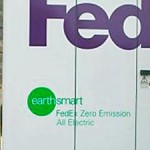“It isn’t what we don’t know that gives us trouble, it’s what we know that ain’t so.” — Will Rogers
 This nation’s energy policy for the past forty years is not that hard to judge — it’s disjointed, shortsighted and largely ineffective. We know it, we say it, but we continue to ignore it. It’s the “what we know that ain’t so.”
This nation’s energy policy for the past forty years is not that hard to judge — it’s disjointed, shortsighted and largely ineffective. We know it, we say it, but we continue to ignore it. It’s the “what we know that ain’t so.”
But, with turmoil in the world, and fuel prices on the rise — again, it’s well past time to continue ignoring it. We can’t afford to do so, either in our pocketbooks or in our security. It’s an energy policy of the past, not that of a once-again growing world economy that has become increasingly interconnected. We cannot let yesterday’s approach hamper tomorrow’s reality. As Will Rogers also said, “Never let yesterday use up too much of today.”
So, we need to use solutions like practical environmentalism in our approach. We’ve got to focus on the following:
(1) Performance: We must improve our usage of energy through commonsensical, responsible approaches. For example, here are some of Environmental Defense Fund’s driving tips that make a great deal of sense:
• Lighten your load. Carrying around an extra 100 pounds in your car reduces your fuel economy by up to 2 percent.
• Keep it smooth. Rapid acceleration and braking reduces gas mileage and can burn an extra 125 gallons of gas per year.
• Mind speed limits. In highway travel, exceeding the speed limit by a mere five mph results in an average fuel economy loss of 6 percent.
(2) Transparency: We must do a better job in communicating why these issues are important. Sure, the planet’s long-term health is involved. But, that doesn’t motivate everyone, and we’re naive if we believe it to be so. We must address the near-term personal risks and benefits, as well.
The tips above do just that, by stressing both the environmental and financial savings. There is nothing wrong with this. It doesn’t make these actions any less legitimate — in fact, it makes them even more valuable and worth taking.






